The 2021-2022 Postgraduate Industry Mentor Appointment Ceremony was held by the School of Journalism and Communication (SJC) in Renmin University of China on December 15, 2021. Thirty-five professionals in the media industry were appointed as industry mentors to the graduate students of SJC, while 13 of them attended the ceremony online and offline.

Long Yonghong, deputy dean of the Graduate School in Renmin University of China, attended the appointment ceremony. Students from the International Journalism and Communication class and the Professional Master class and relevant staffs of SJC also attended the ceremony, including Zhang Huifeng, secretary of China’s Communist Party Committee, Sun Quan and Yan Yan, deputy secretaries of China’s Communist Party Committee, Gao Guiwu, director of the Department of Broadcasting, Wang Shuliang, director of the Department of Advertising and Media Economics, Zhang Di, director of the Department of International Journalism and Communication, and Tana, leader of the professional master’s program. Han Xiaoning, deputy dean of SJC, hosted the ceremony.
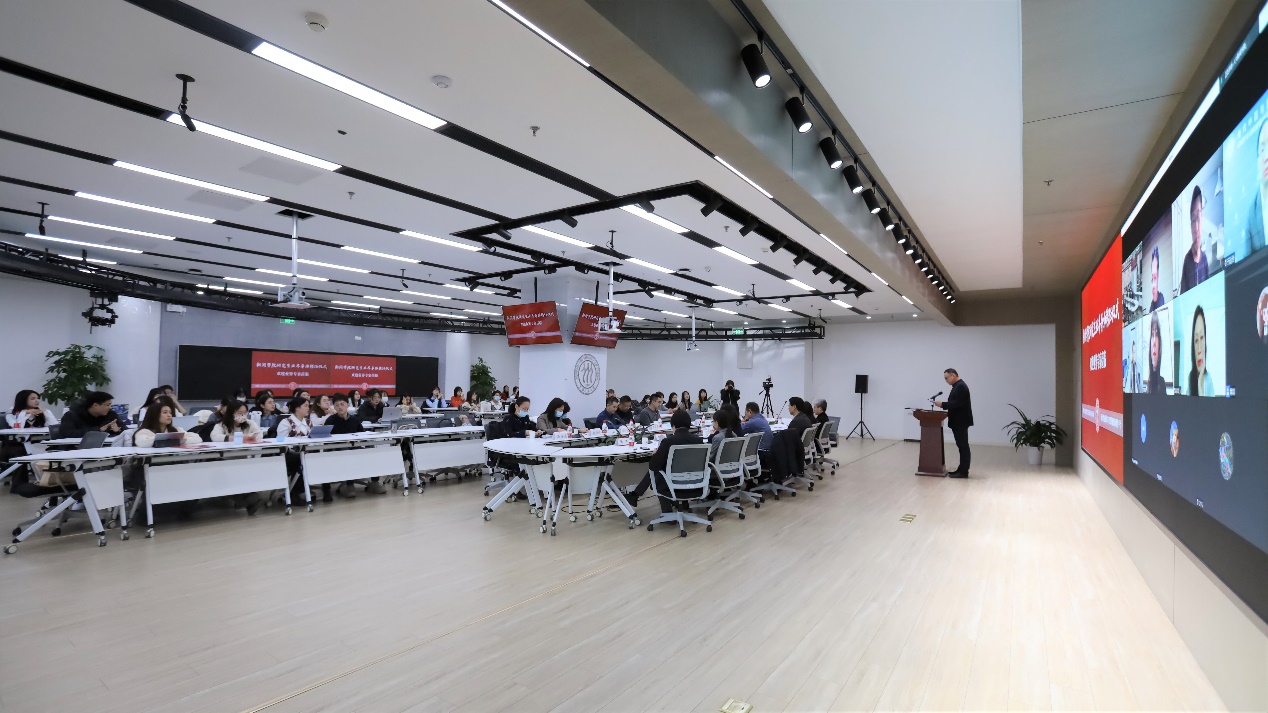
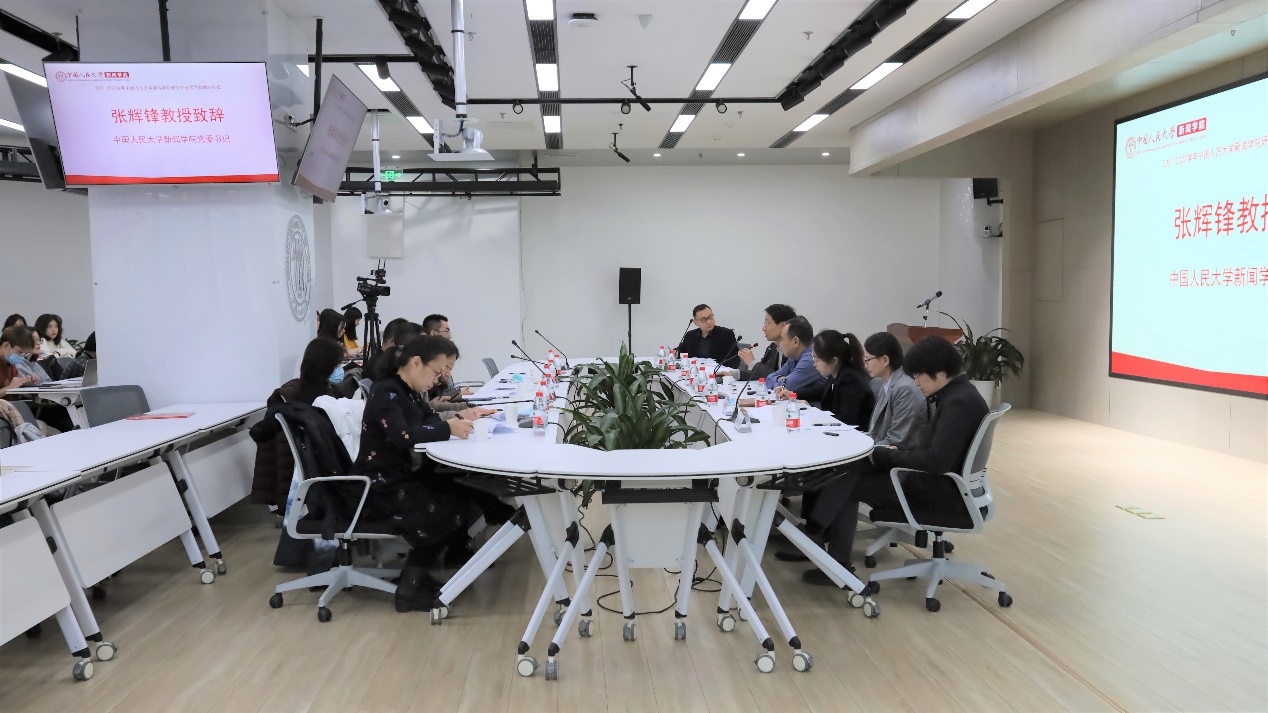
Zhang Huifeng extended his gratitude to all industry mentors for their support and presented the history and the current education system of SJC, pointing out the ecological talent training system of SJC is now greeting the new era, globalization and new technologies. At the master level, SJC offers both academic master’s and professional master’s programs. Academic master’s programs include MA in Journalism, MA in Communication, MA in Media Economics and MA in Broadcasting Journalism, as well as International Journalism and Communication in Journalism MA. As for Professional master’s programs include Full-Time Program of Strategic Communication, Full-Time Program of Big Data and Communication, Part-Time Program of Intelligent Communication, and the "Belt and Road Initiative" Global Journalism and Communication English Master Program. SJC has implemented a dual-tutor system for students in professional master’s programs and the master program in International Journalism and Communication, i.e., every student from the above programs has a teacher from SJC for the guidance in research and study, and an industry mentor for the assistance in work and professional practice. Zhang stressed the key role of postgraduates’ dual-tutor system in talent training, encouraging students to take full advantage of the opportunity to communicate with industry mentors and to improve professional practical skills.
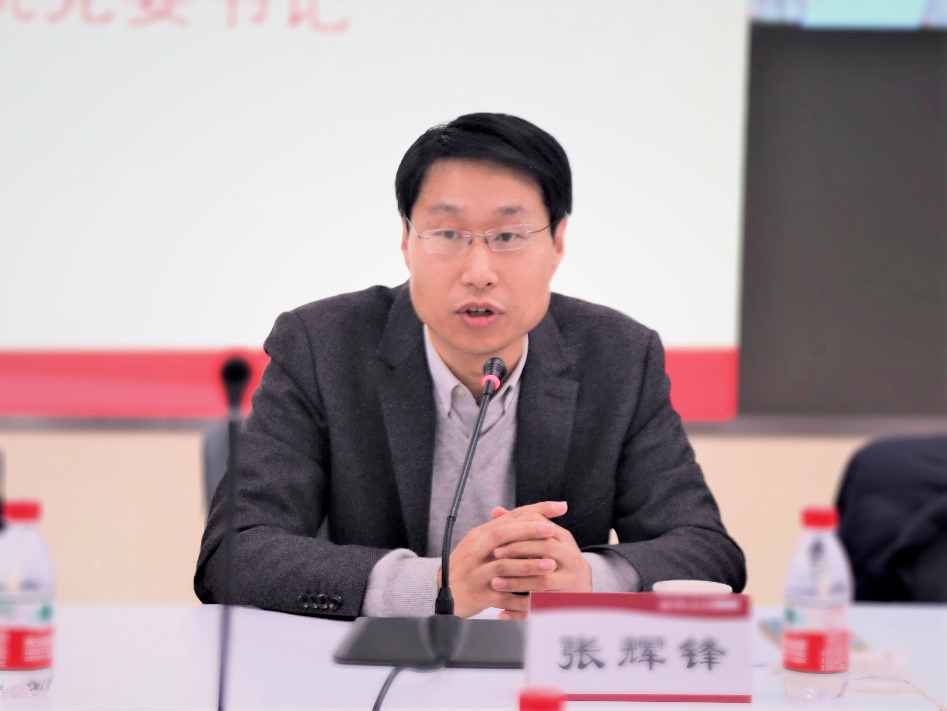
On behalf of the Graduate School, Long Yonghong praised the endeavor of SJC in putting forward the dual-tutor system and integrating the resources in the academia and media industry. Long further stated that the integration of the academia and the industry is the fundamental direction and requirement of talent training. As one of the disciplines closely related to the field of practice, Journalism and Communication studies should innovate constantly in the new era to explore new modes of teaching and practice. He expects that the dual-tutor system will enhance the exchanges between the university and the media industry, integrating new ideas of the industry into talent trainings, and innovating the development modes of Renmin University of China and SJC.
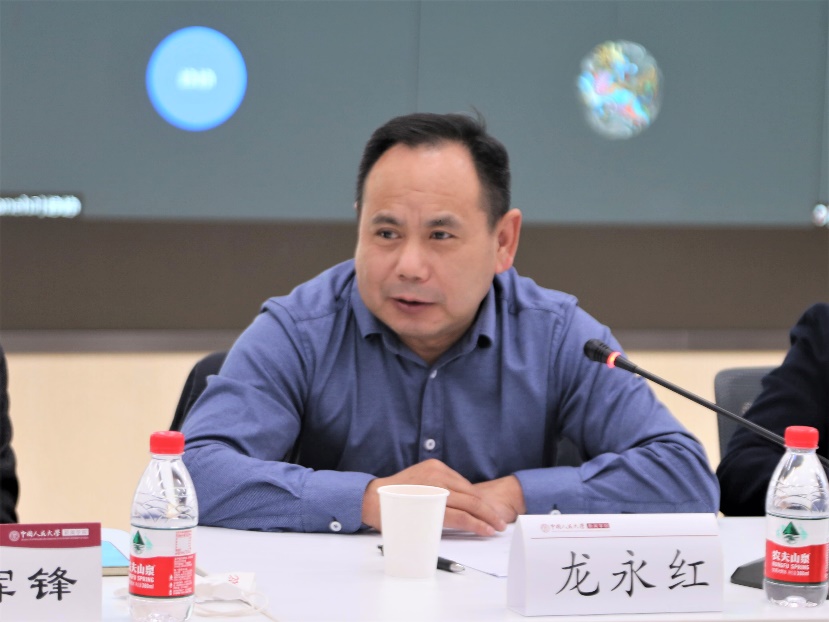
Following the speech, Zhang Huifeng and Long Yonghong offered Letters of Appointment to the industry mentor representatives.
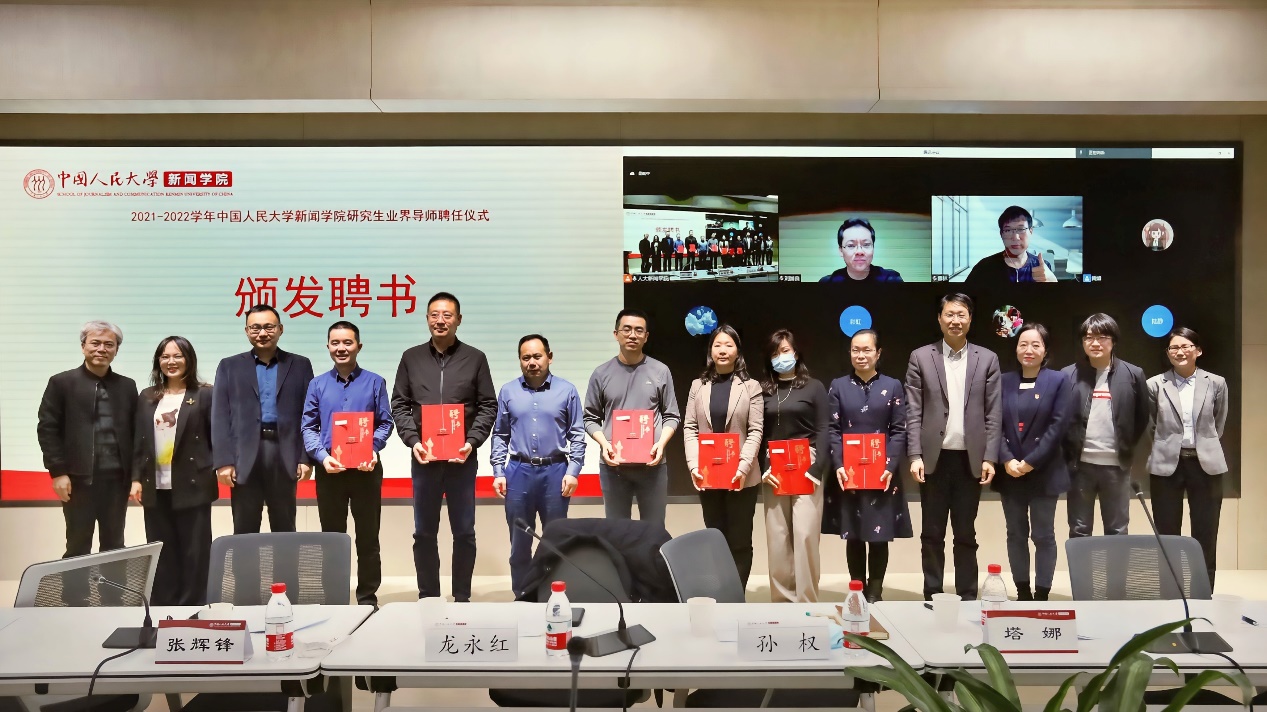
She Xianjun, director of the Advertising Resources Management Department of the General Manager’s Office of China Central Radio and Television Station, shared valuable experiences based on his own career development path, encouraging students to pay close attention to the changes in the e-commerce and advertising industries as well as the influence of brands. He also advised students to broaden their horizons and to master the basic skills of data analysis, video production, manuscript writing, etc. in school.
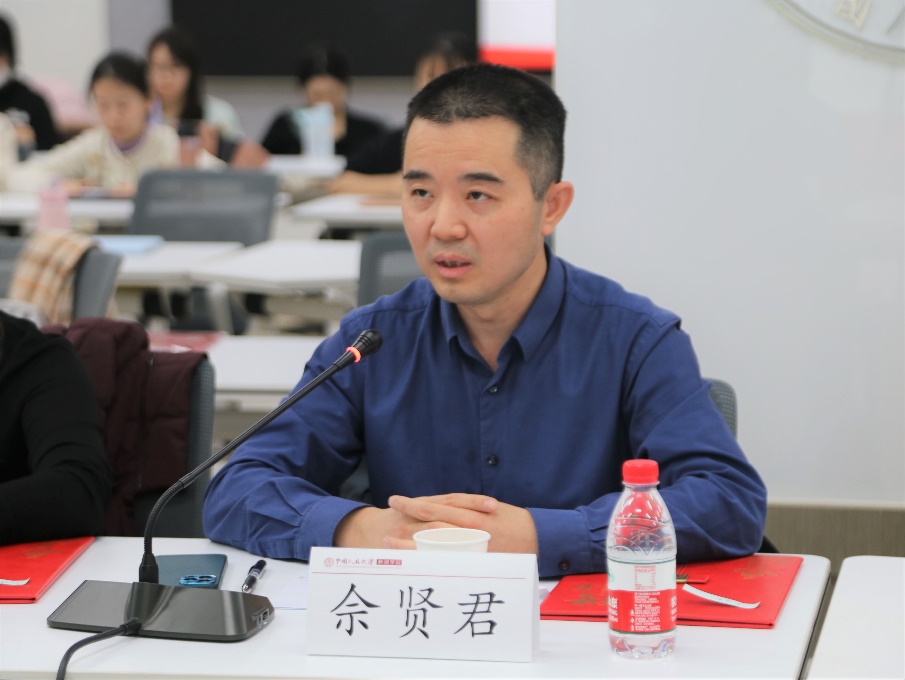
Yu Yunquan, dean of the Institute of Contemporary China and World Studies at China Foreign Languages Publishing Administration (CLCG), emphasized the importance of communications between the academia and industry in building a new international communication system, and suggested that students pay more attention to the field of international news communication. He regarded the dual-tutor system as a platform not only to teach students but also to learn from students and other industry peers.
Jin Peng, general manager of Beijing Broadcasting Group Co., Ltd., reviewed his working experience and pointed out the importance of media convergence to the journalism industry. As an industry mentor, he expressed his willingness to establish a good relationship between SJC and the industry, and to enhance students’ awareness of media convergence by providing internship opportunities etc.
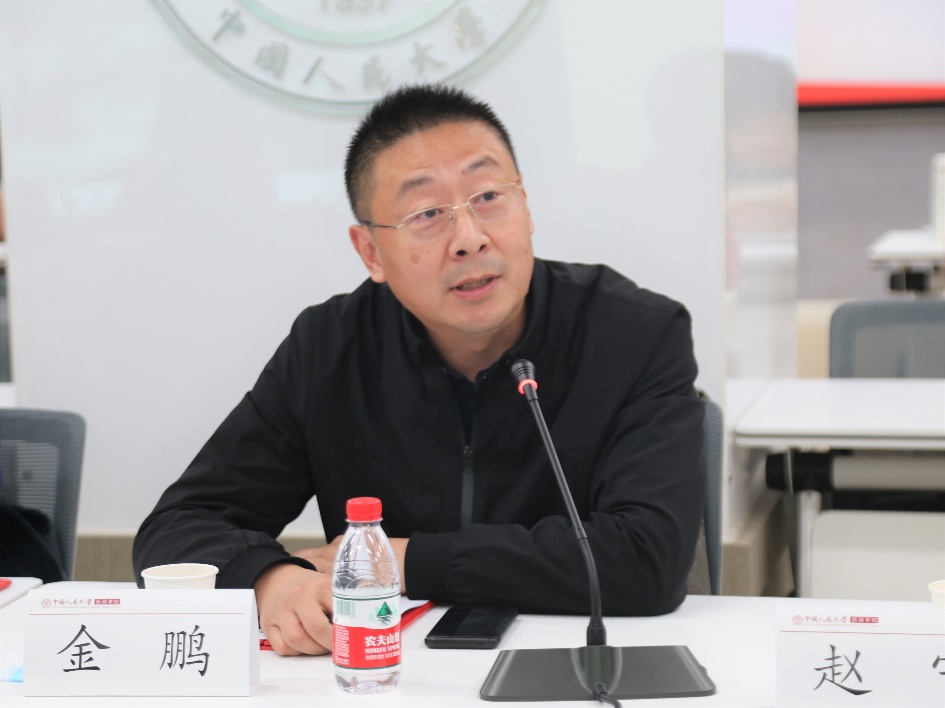
Cao Lin, editorial board member of China Youth Daily, called for the mutual understanding, communication and exchanges between the academia and industry. He believes that the uniqueness and strength of the journalism profession lies in the mutual support between theories and practices, which also proves the necessity of industry mentors. He proposed that students of journalism and communication should not only engage in cross-disciplinary exchanges to absorb the nutrition of political science, diplomacy and sociology, but also maintain contact with the media industry and pay attention to professional practice. He expressed the hope that through the dual-mentor system, students with journalism pursuits, career ideals and professional enthusiasm can be introduced to the best positions, and that more outstanding talents can be attracted to the journalism major and the journalism industry.
Gao Jin, content editor-in-chief of Taobao Products and Platform Ecology Division of Taobao Network Co., Ltd. believes that the core of different forms of media expression such as broadcast and long/short video always lies in the content. She pointed out that the cooperation between the academia and industry will help improve not only students' practice skills, but also the professionalism in the short video production. She hoped to explore a short video production method that best fits the spiritual guidance through the equal communication with students.
Xu Qinduo, host and commentator of China Central Radio and Television Station, pointed out that news has no national borders, but journalists have nationalities. How to report domestic and foreign news in some special international environments requires further consideration in the academic and industry. He suggested that students should improve their English level and enhance their English communication and debating skills so as to deliver the voice of China to the outside world better.
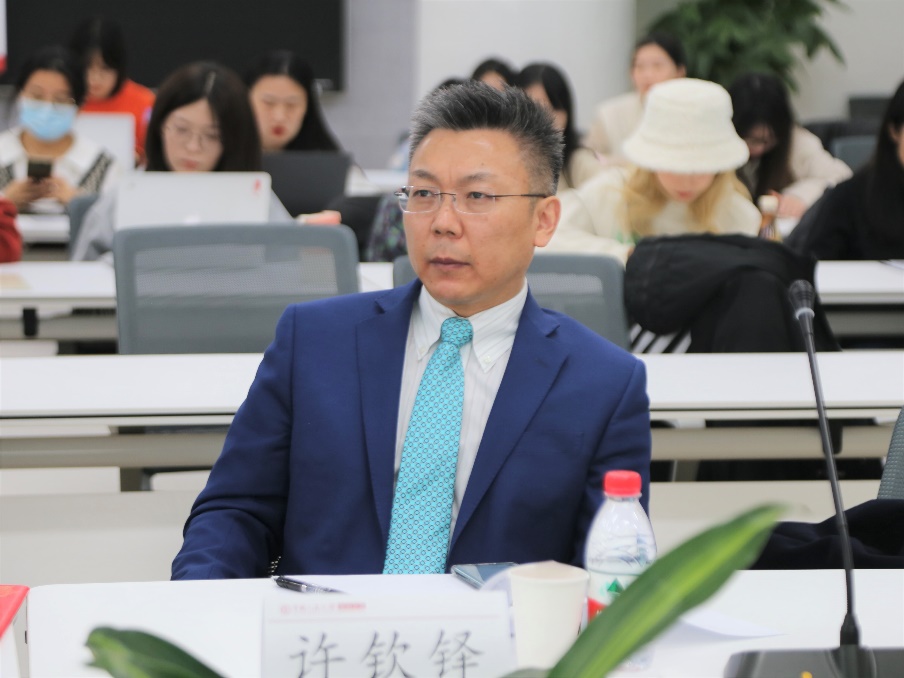
Liu Guoliang, director of the editor-in-chief of The Beijing News, believes that the dual-tutor system has built a bridge between the academia and the industry. He stressed that with the deepening of media convergence, both the academia and industry are committed to exploring media convergence and transformation, which also puts forward higher requirements for the talent training of SJC. He encouraged students to learn professional knowledge, exercise critical thinking, and to do more internship work to increase their skills in practice.
Sun Jing, director of the Foreign Development Department of the News Information Center of Xinhua News Agency, emphasized the importance of international communication, and pointed out the two-way benefits of the dual-mentor system by taking students who did their internship work well in Xinhua News Agency as an example. She believes that industry mentors can not only improve students' practical ability in a targeted manner, but also help the media attract excellent talent resources.

Bai Fengzhe, director of the commentary department of Farmers’ Daily, believes that the model of industry mentors can enhance the communication between the industry and academia, so that the two sides can promote and complement each other. She emphasized the importance of the field of agriculture, rural areas and farmers, as well as its increasingly close relationship with the international community, encouraging more students to join the journalism and communication cause of agriculture, rural areas and farmers.

Based on her own experience in the making of documentaries, Lu Caihong, the editor-in-chief of China Central Radio and Television Station, pointed out that both documentaries and news are the pursuit of truth. The passion and knowledge of documentaries can therefore help in making news or producing short videos. She said she would maintain a good relationship of mutual trust with her students to make progress together.
Zhao Ning, general manager of Gravity Conservation Brand Management Company, pointed out that the news logic and public relations awareness learned from SJC can be integrated into his advertising work, transcending the difference between the news industry and the advertising industry. He said that the industry mentor system is rooted in the expectations of the university and SJC for the future job of postgraduate students. As an industry mentor, he would do his best to provide guidance and help for students.
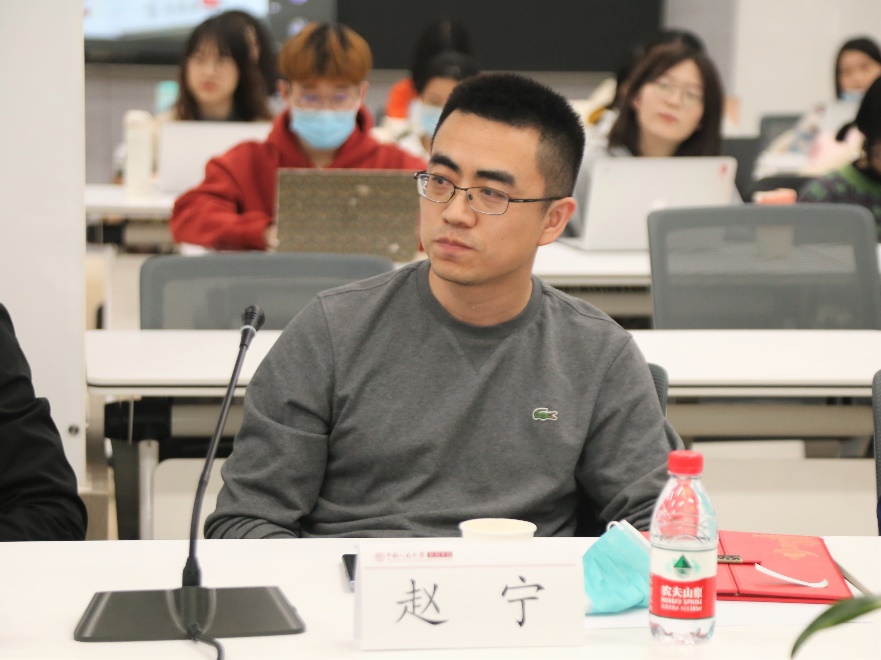
Ma Haiyan, editor-in-chief of the Science, Education, Culture and Health Collection and Editing Office from the Political and Cultural Department of China News Service, reviewed her campus life and working experience. She pointed out that in the ever-changing era, the media industry needs fresh blood to join in and hoped that the students would play an active role in the journalism industry to tell Chinese stories well under the background of media convergence.
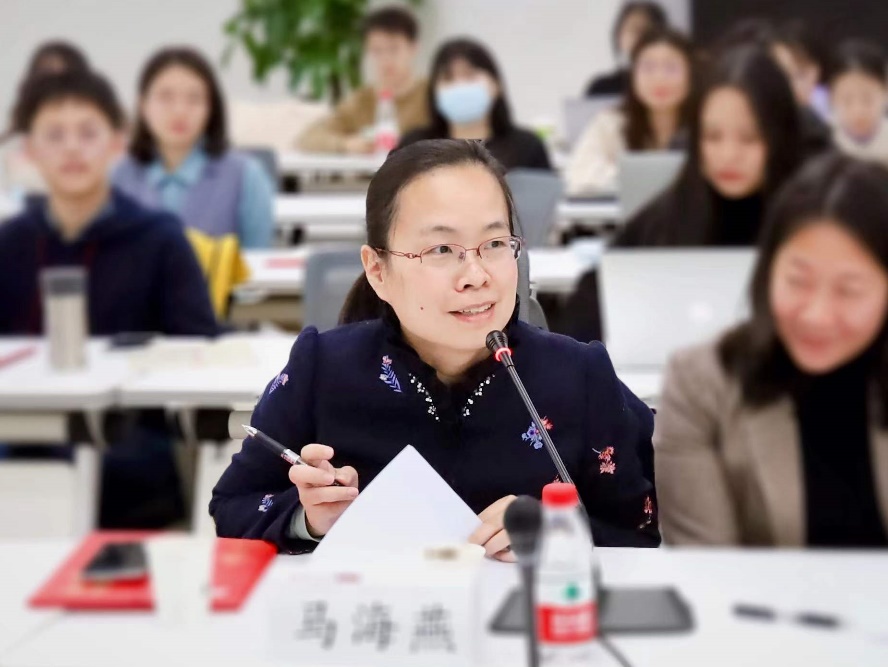
Zhang Di, director of the International Journalism and Communication Department and director of the International Journalism and Communication project, expressed his gratitude to all the industry mentors for their active participation. He pointed out that a large proportion of students in the master’s program of International Journalism and Communication have entered mainstream media to engage in publicity work after graduation, which is inseparable from the help of industry mentors. Amidst the winds of change in the field of international news and communication in the past few years, he advocated students to strengthen communications\ with industry mentors who are active in the front line of journalism and communication to learn more about the innovative practices in the industry, and to enhance their understanding of this field.
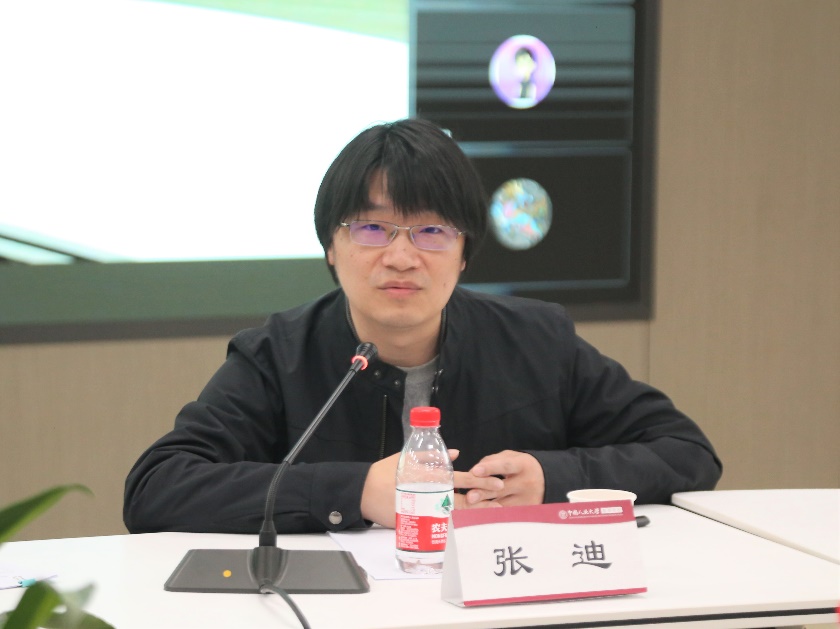
Sun Quan, deputy secretary of China’s Communist Party Committee of SJC, pointed out that in addition to the dual-mentor system, the school also has mechanisms such as the Student Innovation, Entrepreneurship and Career Development Steering Committee to provide employment guidance for students and to help the industry to select and absorb talents. She expressed her gratitude to the industry mentors for their hard work and enthusiasm in cultivating talents, and encouraged the students to seize the opportunity to deepen exchanges with industry mentors in the pursuit of theoretical knowledge and skills.
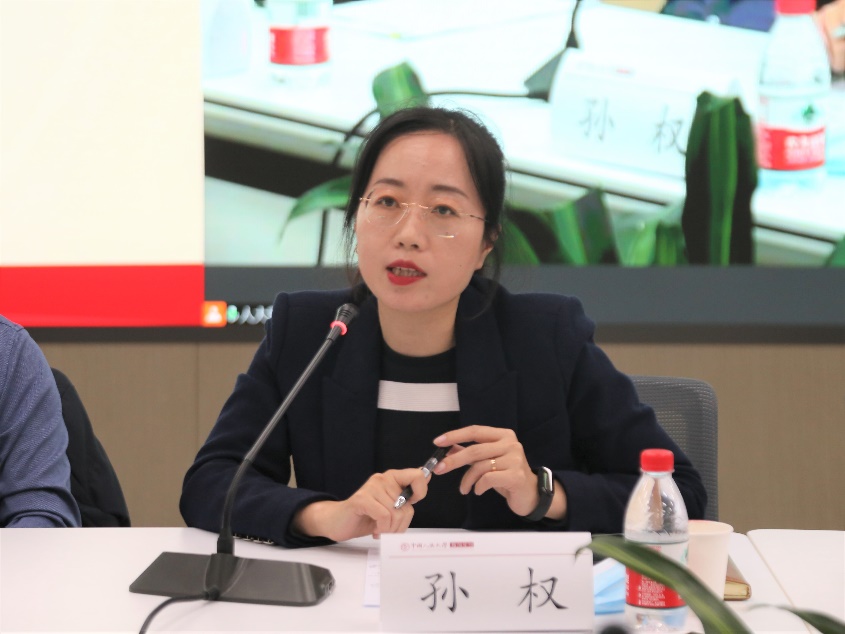
Wang Ruofan from the 2021 Professional Master Class and Shao Yucheng from the 2021 International Journalism and Communication Class delivered speeches as student representatives, expressing their respect and gratitude to the university, SJC and all industry mentors. Zhang Huifeng, secretary of China’s Communist Party Committee of SJC, made a concluding speech to encourage students to actively communicate with and to learn from their industry mentors.
SJC of Renmin University of China is one of the first schools in China to offer master and doctoral programs, beginning to enroll postgraduates in 1978, and launching master degrees in 1981 and doctoral degrees in 1984. In response to the demand for specialized talents in the field of journalism and communication, SJC provided a professional master’s program in journalism and communication in 2010, which was later divided into the Program of Big Data and Communication, the Program of Strategic Communication, and the "Belt and Road Initiative" Global Journalism and Communication English Master Program. In 2020, SJC began to enroll part-time master’s program of Intelligent Communication. In order to promote the construction of China's international communication capacity, SJC also launched a master’s program in International Journalism and Communication in 2009. As the development of the journalism and communication puts forward new demands and challenges to talent training, the dual-tutor system for professional master’s programs and the master’s program of International Journalism and Communication has proved to be fruitful and effective. The close cooperation between the academia and the industry is of great significance for cultivating outstanding news communication talents that meet the needs of the new era.
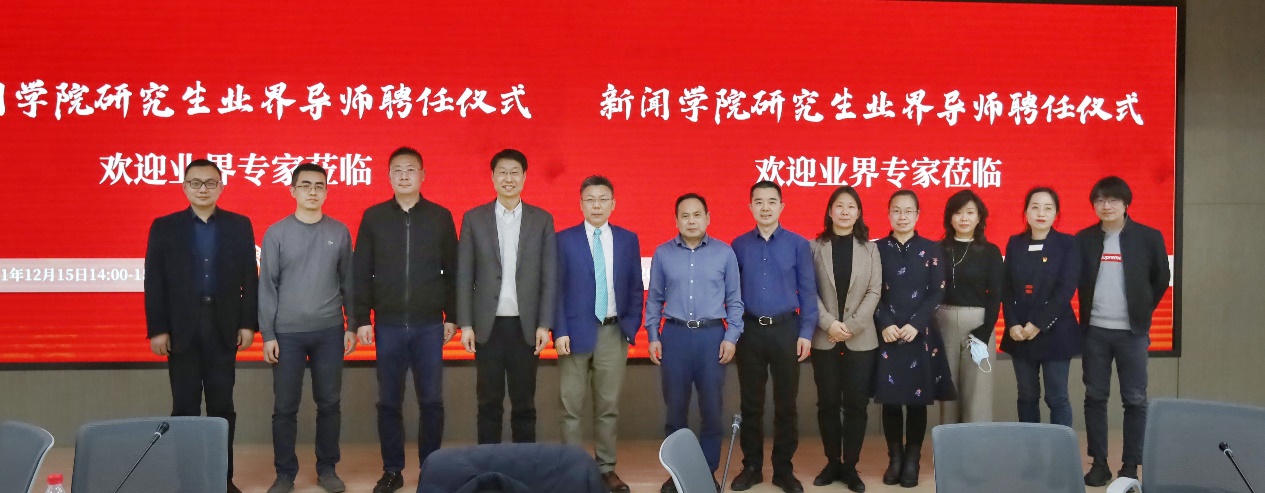
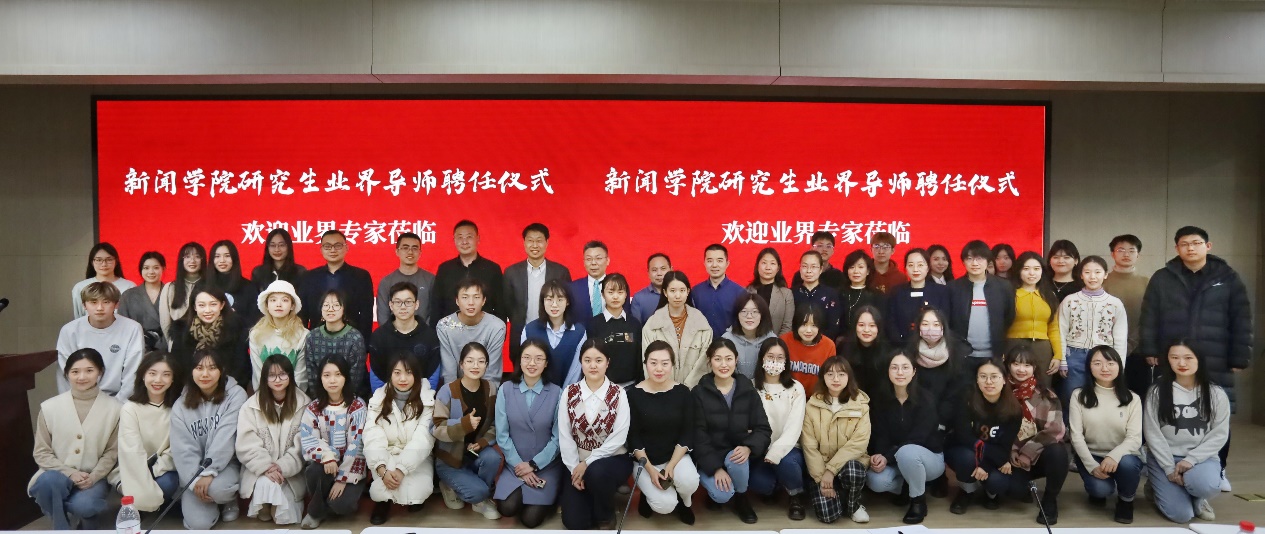
Author: Su Juan, Wen Yingying
Photo by: You Wenhui, Wang Daosheng, Wen Yingying
Editor: Guan Yilun,Wang Daosheng
Translator: Chen Ran



